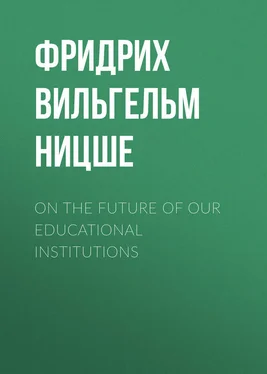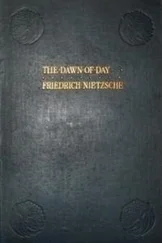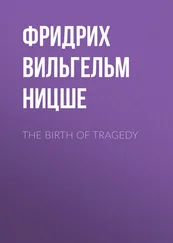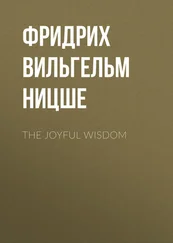Фридрих Ницше - On the Future of our Educational Institutions
Здесь есть возможность читать онлайн «Фридрих Ницше - On the Future of our Educational Institutions» — ознакомительный отрывок электронной книги совершенно бесплатно, а после прочтения отрывка купить полную версию. В некоторых случаях можно слушать аудио, скачать через торрент в формате fb2 и присутствует краткое содержание. Жанр: Философия, literature_19, foreign_antique, foreign_prose, на английском языке. Описание произведения, (предисловие) а так же отзывы посетителей доступны на портале библиотеки ЛибКат.
- Название:On the Future of our Educational Institutions
- Автор:
- Жанр:
- Год:неизвестен
- ISBN:нет данных
- Рейтинг книги:3 / 5. Голосов: 1
-
Избранное:Добавить в избранное
- Отзывы:
-
Ваша оценка:
- 60
- 1
- 2
- 3
- 4
- 5
On the Future of our Educational Institutions: краткое содержание, описание и аннотация
Предлагаем к чтению аннотацию, описание, краткое содержание или предисловие (зависит от того, что написал сам автор книги «On the Future of our Educational Institutions»). Если вы не нашли необходимую информацию о книге — напишите в комментариях, мы постараемся отыскать её.
On the Future of our Educational Institutions — читать онлайн ознакомительный отрывок
Ниже представлен текст книги, разбитый по страницам. Система сохранения места последней прочитанной страницы, позволяет с удобством читать онлайн бесплатно книгу «On the Future of our Educational Institutions», без необходимости каждый раз заново искать на чём Вы остановились. Поставьте закладку, и сможете в любой момент перейти на страницу, на которой закончили чтение.
Интервал:
Закладка:
Indeed, you yourselves may expect something of this kind from me. I happened once, in strange but perfectly harmless circumstances, to overhear a conversation on this subject between two remarkable men, and the more striking points of the discussion, together with their manner of handling the theme, are so indelibly imprinted on my memory that, whenever I reflect on these matters, I invariably find myself falling into their grooves of thought. I cannot, however, profess to have the same courageous confidence which they displayed, both in their daring utterance of forbidden truths, and in the still more daring conception of the hopes with which they astonished me. It therefore seemed to me to be in the highest degree important that a record of this conversation should be made, so that others might be incited to form a judgment concerning the striking views and conclusions it contains: and, to this end, I had special grounds for believing that I should do well to avail myself of the opportunity afforded by this course of lectures.
I am well aware of the nature of the community to whose serious consideration I now wish to commend that conversation – I know it to be a community which is striving to educate and enlighten its members on a scale so magnificently out of proportion to its size that it must put all larger cities to shame. This being so, I presume I may take it for granted that in a quarter where so much is done for the things of which I wish to speak, people must also think a good deal about them. In my account of the conversation already mentioned, I shall be able to make myself completely understood only to those among my audience who will be able to guess what I can do no more than suggest, who will supply what I am compelled to omit, and who, above all, need but to be reminded and not taught.
Listen, therefore, ladies and gentlemen, while I recount my harmless experience and the less harmless conversation between the two gentlemen whom, so far, I have not named.
Let us now imagine ourselves in the position of a young student – that is to say, in a position which, in our present age of bewildering movement and feverish excitability, has become an almost impossible one. It is necessary to have lived through it in order to believe that such careless self-lulling and comfortable indifference to the moment, or to time in general, are possible. In this condition I, and a friend about my own age, spent a year at the University of Bonn on the Rhine, – it was a year which, in its complete lack of plans and projects for the future, seems almost like a dream to me now – a dream framed, as it were, by two periods of growth. We two remained quiet and peaceful, although we were surrounded by fellows who in the main were very differently disposed, and from time to time we experienced considerable difficulty in meeting and resisting the somewhat too pressing advances of the young men of our own age. Now, however, that I can look upon the stand we had to take against these opposing forces, I cannot help associating them in my mind with those checks we are wont to receive in our dreams, as, for instance, when we imagine we are able to fly and yet feel ourselves held back by some incomprehensible power.
I and my friend had many reminiscences in common, and these dated from the period of our boyhood upwards. One of these I must relate to you, since it forms a sort of prelude to the harmless experience already mentioned. On the occasion of a certain journey up the Rhine, which we had made together one summer, it happened that he and I independently conceived the very same plan at the same hour and on the same spot, and we were so struck by this unwonted coincidence that we determined to carry the plan out forthwith. We resolved to found a kind of small club which would consist of ourselves and a few friends, and the object of which would be to provide us with a stable and binding organisation directing and adding interest to our creative impulses in art and literature; or, to put it more plainly: each of us would be pledged to present an original piece of work to the club once a month, – either a poem, a treatise, an architectural design, or a musical composition, upon which each of the others, in a friendly spirit, would have to pass free and unrestrained criticism.
We thus hoped, by means of mutual correction, to be able both to stimulate and to chasten our creative impulses and, as a matter of fact, the success of the scheme was such that we have both always felt a sort of respectful attachment for the hour and the place at which it first took shape in our minds.
This attachment was very soon transformed into a rite; for we all agreed to go, whenever it was possible to do so, once a year to that lonely spot near Rolandseck, where on that summer's day, while sitting together, lost in meditation, we were suddenly inspired by the same thought. Frankly speaking, the rules which were drawn up on the formation of the club were never very strictly observed; but owing to the very fact that we had many sins of omission on our conscience during our student-year in Bonn, when we were once more on the banks of the Rhine, we firmly resolved not only to observe our rule, but also to gratify our feelings and our sense of gratitude by reverently visiting that spot near Rolandseck on the day appointed.
It was, however, with some difficulty that we were able to carry our plans into execution; for, on the very day we had selected for our excursion, the large and lively students' association, which always hindered us in our flights, did their utmost to put obstacles in our way and to hold us back. Our association had organised a general holiday excursion to Rolandseck on the very day my friend and I had fixed upon, the object of the outing being to assemble all its members for the last time at the close of the half-year and to send them home with pleasant recollections of their last hours together.
The day was a glorious one; the weather was of the kind which, in our climate at least, only falls to our lot in late summer: heaven and earth merged harmoniously with one another, and, glowing wondrously in the sunshine, autumn freshness blended with the blue expanse above. Arrayed in the bright fantastic garb in which, amid the gloomy fashions now reigning, students alone may indulge, we boarded a steamer which was gaily decorated in our honour, and hoisted our flag on its mast. From both banks of the river there came at intervals the sound of signal-guns, fired according to our orders, with the view of acquainting both our host in Rolandseck and the inhabitants in the neighbourhood with our approach. I shall not speak of the noisy journey from the landing-stage, through the excited and expectant little place, nor shall I refer to the esoteric jokes exchanged between ourselves; I also make no mention of a feast which became both wild and noisy, or of an extraordinary musical production in the execution of which, whether as soloists or as chorus, we all ultimately had to share, and which I, as musical adviser of our club, had not only had to rehearse, but was then forced to conduct. Towards the end of this piece, which grew ever wilder and which was sung to ever quicker time, I made a sign to my friend, and just as the last chord rang like a yell through the building, he and I vanished, leaving behind us a raging pandemonium.
In a moment we were in the refreshing and breathless stillness of nature. The shadows were already lengthening, the sun still shone steadily, though it had sunk a good deal in the heavens, and from the green and glittering waves of the Rhine a cool breeze was wafted over our hot faces. Our solemn rite bound us only in so far as the latest hours of the day were concerned, and we therefore determined to employ the last moments of clear daylight by giving ourselves up to one of our many hobbies.
Читать дальшеИнтервал:
Закладка:
Похожие книги на «On the Future of our Educational Institutions»
Представляем Вашему вниманию похожие книги на «On the Future of our Educational Institutions» списком для выбора. Мы отобрали схожую по названию и смыслу литературу в надежде предоставить читателям больше вариантов отыскать новые, интересные, ещё непрочитанные произведения.
Обсуждение, отзывы о книге «On the Future of our Educational Institutions» и просто собственные мнения читателей. Оставьте ваши комментарии, напишите, что Вы думаете о произведении, его смысле или главных героях. Укажите что конкретно понравилось, а что нет, и почему Вы так считаете.












